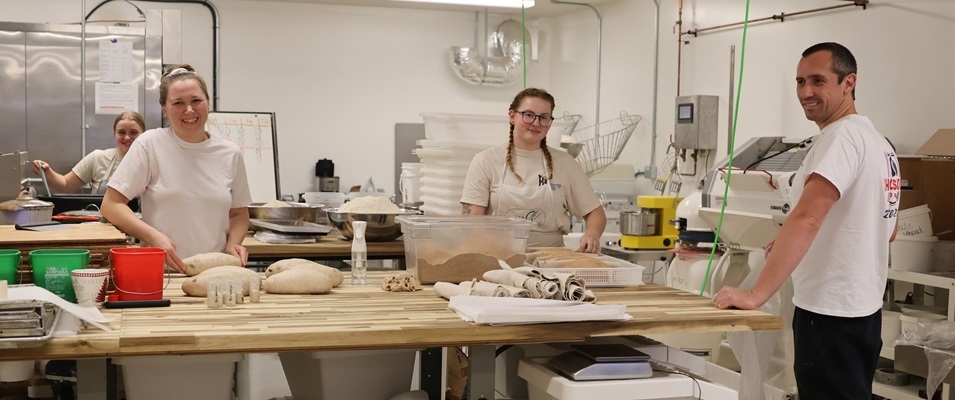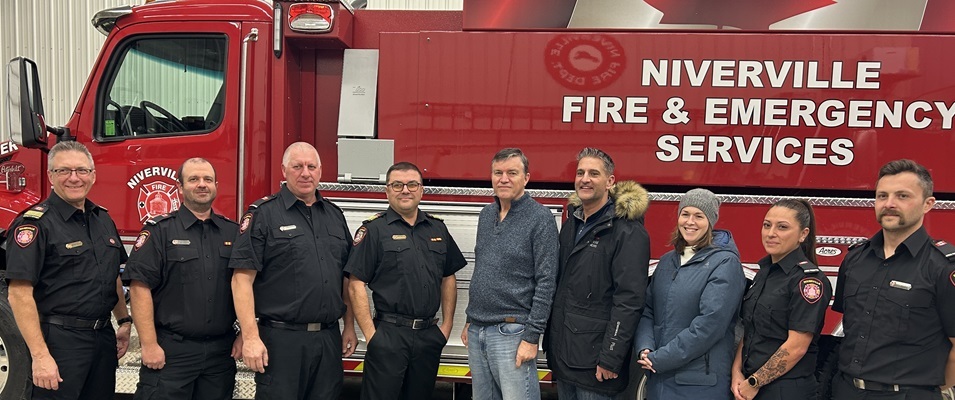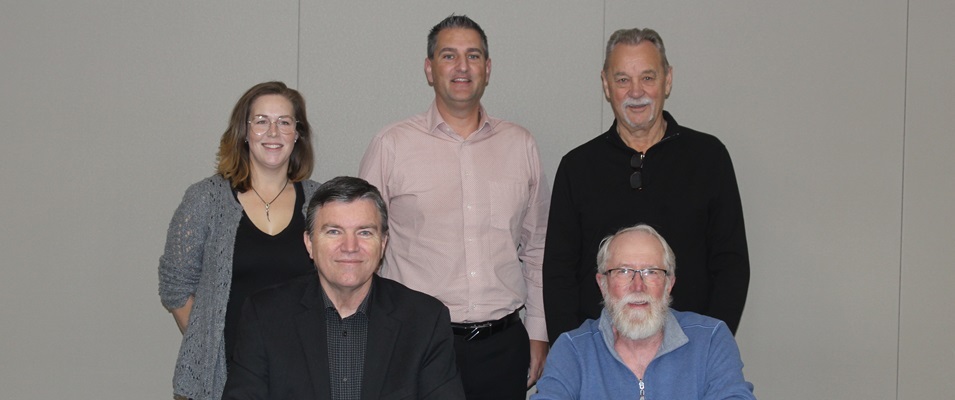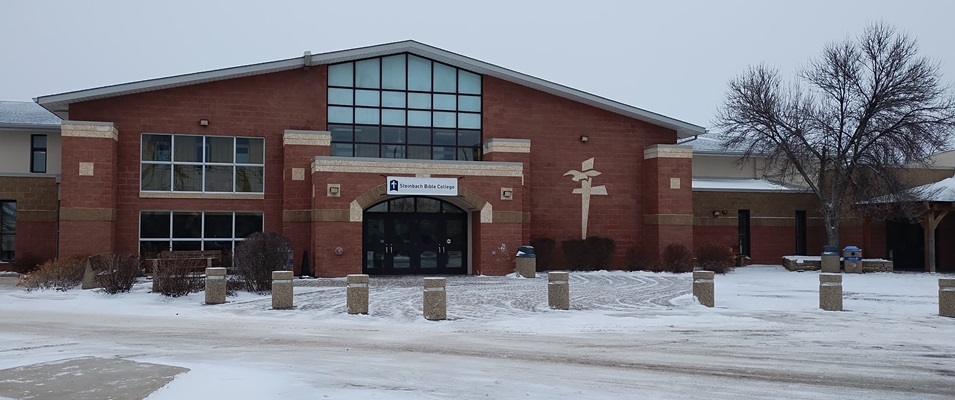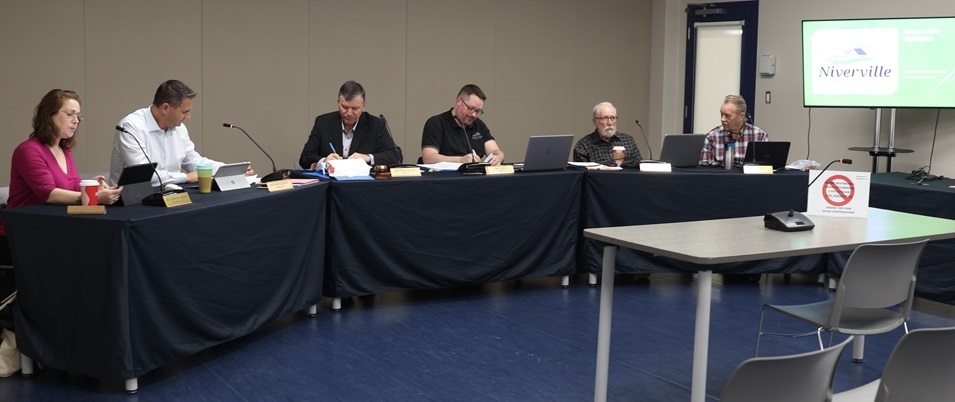A new year means a new chapter of freshly conceived planning strategies and initiatives for the Town of Niverville. Council closed 2017 with its annual planning sessions on November 3–4, held at Providence College for the first time.
“The experience was great,” says Mayor Myron Dyck. “We had a boardroom to meet and our meals were provided by the local cafeteria.”
In previous years, council retreated to the quiet space of a Winnipeg hotel boardroom to get in a full weekend of planning—planning that extends well beyond an eight-hour workday. This year’s change in location provided the opportunity for council members to return to their homes for the night, saving costs and ensuring a restful sleep.
It also allowed for the attendance of other town delegations, such as the local fire chief and the public works and finance managers, who were able to make presentations to council and answer any questions that arose.
“The planning session is a review of all of our departments,” Dyck says. “The agenda is over 20 pages long. We look at infrastructure needs, policy changes, bylaws that we need to make or amend, staffing and capital expenditure needs. We look at what we need now, in five years, ten years, and beyond. Costs are presented to council [as well as] the implications on borrowing money and taxes. Then council sets the priorities and, in most cases, assigns staff specific tasks to research information on items council would like to see done.”
Between now and budget time in April, staff will present their findings to council, hopefully providing the clarity needed to issue a green light, postpone the project for another year, or reject it altogether.
“We spend some time doing ‘blue sky’ thinking,” Dyck adds. “We ask, if we could, what would we like to see for Niverville? A brainstorming session, if you will.”
One topic on the planning session agenda was about policing services.
“We have asked staff to find out which companies provide overviews of policing services and to get a cost for such a report back to council,” says Dyck.
Integral to this year’s planning was extensive research data provided by Sison Blackburn Consulting (SBC) Inc. The company was hired to perform a thorough analysis of the community, past and present, creating a template by which council can move towards being an even more progressive and vibrant community.
“The development plan is intended to encapsulate the community vision of where it wants to be in the coming decades,” said Ross Mitchell of SBC to attendees at this year’s fall open house. “The town could decide to be just a bedroom community for upper-income commuters living in single-family dwellings with a gas bar and day-to-day retail. Or [it could be] a ‘complete community’ that accommodates people and families from all socioeconomic levels and lifestyles.”
The resulting data was compiled alongside survey results gathered from residents and business owners in the fall of 2017. The document addresses the town’s current strengths. What can Niverville build on? What are residents most proud of? What makes the community unique? Answers to these involve the upcoming high school and multiplex as well as the existing Heritage Centre campus. The community also boasts a large labour pool based on its growing demographic of young families. The wetlands in Hespeler Park offer opportunities for tourism.
Buzzwords used by residents in the survey to describe the community were friendly, small-town feel, service-based community, being on the edge of the city’s influence, and value for money.
This document also looks at the economic development strengths of town staff, the local Chamber of Commerce, and private enterprise. Opportunities for commercial and industrial growth include further business diversity and pulling manufacturing and import/export businesses into the mix.
For a brighter future, the data asserts that Niverville needs to have sustainable and well-thought-out growth in all sectors. It also needs to create an economic climate where more residents have opportunity to work in the community and not just live there. Maintaining the small town feel without losing progressive momentum is also a strong factor.
Gaps in Niverville’s business sector include a lack of arts and entertainment options, high-tech industry, manufacturing, hotels, daycare, and tourism.
The best opportunities to fill Niverville’s business gaps lie in addressing Main Street’s challenges, including beautification, improving foot-traffic accessibility, increasing commercial density, and creating a hub for local and tourist traffic. Considerations for added Main Street business might include a lounge or bar, bowling alley, concert venue, and more retail.
Continued development of the community’s industrial lands should create opportunities to draw in medium-scale manufacturing. The report suggests that the town’s marketing strategy focus on affordable commercial land, a readily available and educated labour pool, and the reduced cost of that labour pool when compared to other communities or cities.
Encouraging builders to create more lease space, developing tourism draws, and pushing for a hotel in the community will further close the gaps.
With so much to consider, council is now busy working on implementation of these initiatives through an action plan. Come budget time in April, the community should have a better view of what’s to come.





